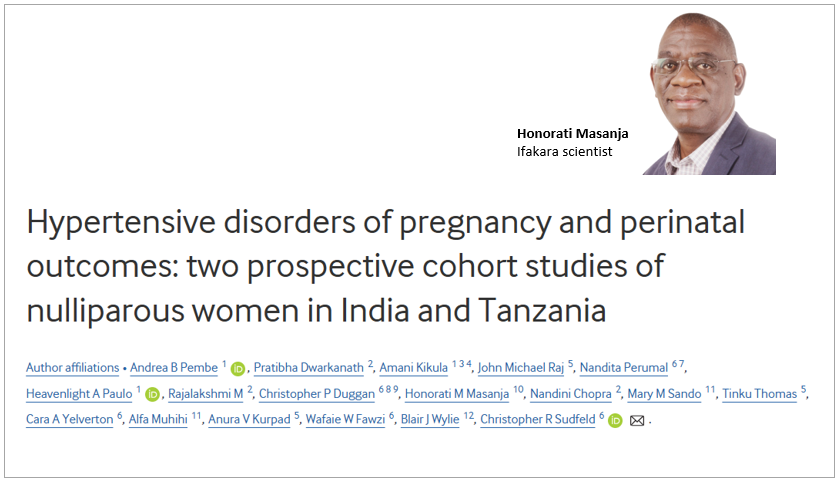
MATERNAL HEALTH: High blood pressure in pregnancy increases risk for newborn deaths – study

A new study published in BMJ Global Health raises concerns about the dangers of high blood pressure during pregnancy, linking the condition to increased risks of stillbirth and newborn death in both India and Tanzania.
The research followed more than 20,000 first-time pregnant women across the two countries over a four-year period. It found that women who developed high blood pressure-related conditions during pregnancy—such as pre-eclampsia—were far more likely to experience poor pregnancy outcomes, including the death of their babies before or shortly after birth.
“These findings highlight the urgent need to implement effective interventions that prevent, reduce the severity or delay the onset of HDP may improve perinatal outcomes in LMICs,” the authors stated.
High blood pressure prevalence is up to 4.5%
In India, 3.7% of pregnancies were affected by hypertensive disorders of pregnancy (HDP), while in Tanzania the figure was slightly higher at 4.5%. Among those cases, women diagnosed with pre-eclampsia with severe symptoms faced the highest risk, with babies up to eight times more likely to die compared to those born to mothers with normal blood pressure.
“Pre-eclampsia with severe features was associated with a much larger magnitude of increased risk for perinatal death at ~8 times the risk of pregnancies without an HDP in India and ~4 times the risk in Tanzania,” wrote the authors in their paper.
Early onset poses highest danger
The timing of when high blood pressure started also made a big difference. Women who developed high blood pressure early in pregnancy—before 34 weeks—faced the highest risks. In these cases, the study recorded death rates of 25.6% in India and 36.9% in Tanzania. Early high blood pressure was also linked to babies being born premature, having low birth weights, or being born smaller than expected for their gestational age.
Need for better prevention strategies
The study emphasizes the importance of early detection and management of high blood pressure during pregnancy, especially in low- and middle-income countries, where healthcare resources are limited. Interventions such as calcium supplements and low-dose aspirin during pregnancy could help prevent or delay the onset of HDP, potentially saving many newborn lives.
Groundbreaking research in maternal health
This is one of the first large-scale studies of its kind to assess the impact of hypertensive disorders in pregnancy in low-resource settings, using routine blood pressure and proteinuria monitoring throughout pregnancy.
Tanzanian and international researchers collaborate
The study brought together experts from Tanzania, India, and the United States. Dr. Honorati Masanja of the Ifakara Health Institute contributed to the study. Dr. Andrea Pembe of Muhimbili University of Health and Allied Sciences served as lead author, while Dr. Christopher Sudfeld of the Harvard T.H. Chan School of Public Health was the senior author.
Other contributors include researchers from St John’s Research Institute (India), the Africa Academy for Public Health (Tanzania), and Beth Israel Deaconess Medical Center (USA).
Read the publication here.
